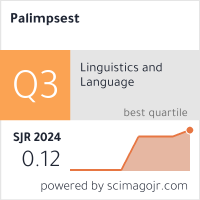ACROSS BORDERS: AN EMPIRICAL EXPLORATION OF GERMAN ALBANIAN BILINGUALISM
DOI:
https://doi.org/10.46763/PALIM25101965kAbstract
In this article, we examine German-Albanian bilingualism. This area of research is not only of scientific interest but also significantly shapes the daily lives of many people, making it socially, economically, and politically relevant. In today's world, bilingualism is not only a subject of scientific inquiry but increasingly reflects a social reality. This phenomenon is attributed to the growing mobility of people and their global interdependence: travel, studying abroad, or extended stays abroad for professional reasons, migration, waves of refugees, and ultimately the increasing internationalization of politics and economics are some of the main reasons people are confronted with new languages (cf. Mahlstedt, 1996, p. 15). Bilingualism can be fundamentally divided into two forms: belonging to indigenous ethnic groups and bilingualism resulting from international migration. Our study focuses on the latter. We rely on important scientific findings and data from empirical studies on Albanian-German bilingualism, collected through questionnaires and interviews. There has been no comprehensive scientific study on German-Albanian bilingualism to date. Our work modestly contributes to filling this research gap.
Keywords: Bilingualism; dominance; migration; empirical; survey; German; Albanian.
Downloads
Downloads
Published
Issue
Section
License
The intellectual property and copyright on the original content of all scientific contributions in the published paper shall remain with the authors. Authors give permission to the JAPS owner to publish the paper. All authors agree to publish the paper under Attribution-NonCommercial-NoDerivatives 4.0 International license (CC BY-NC-ND 4.0)


